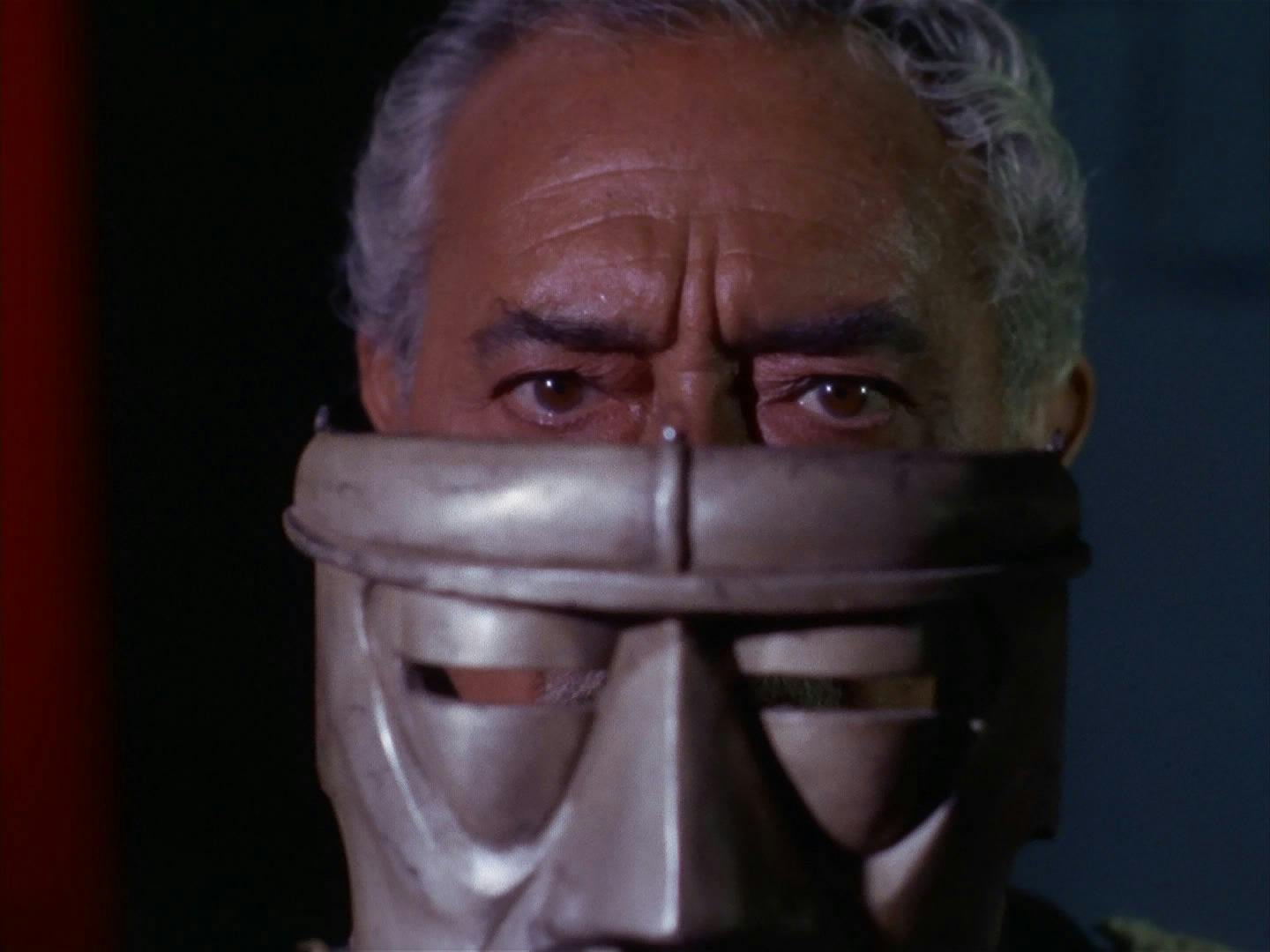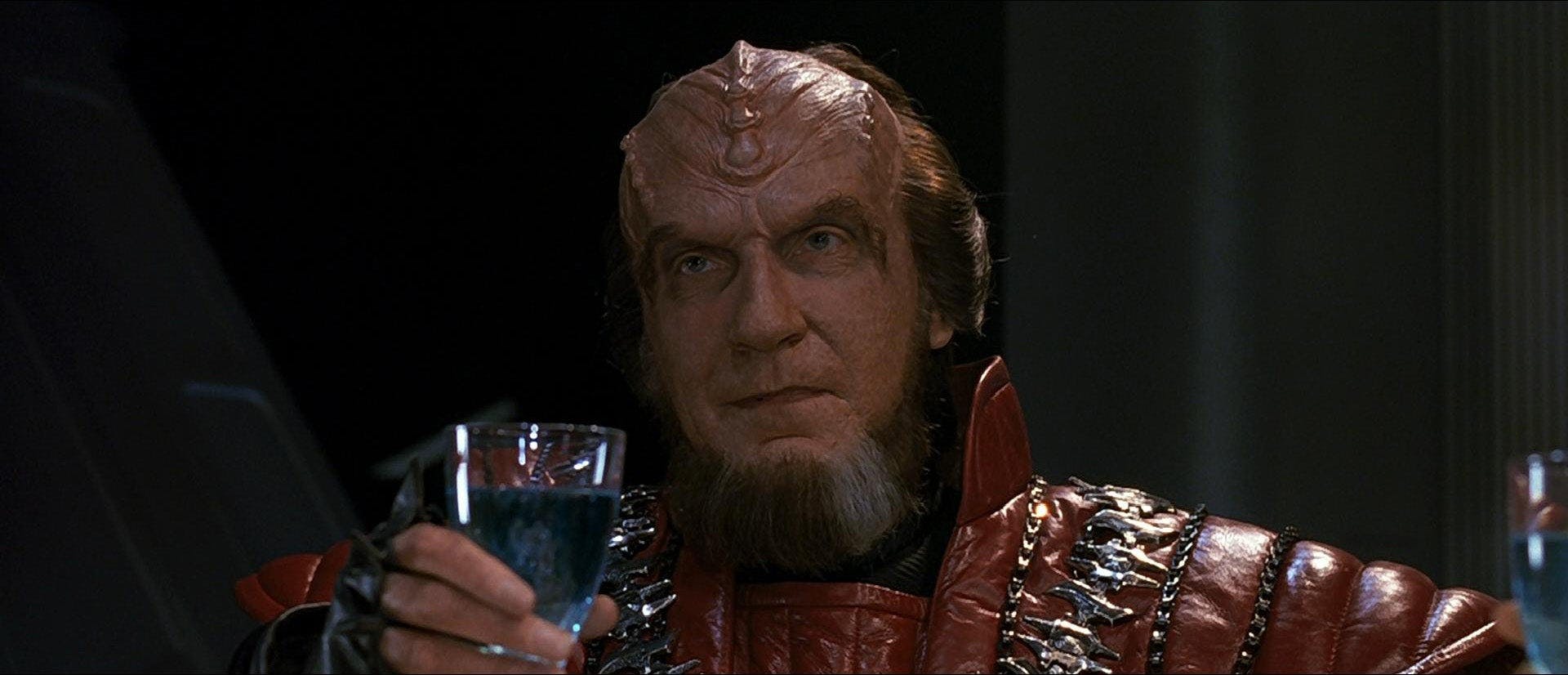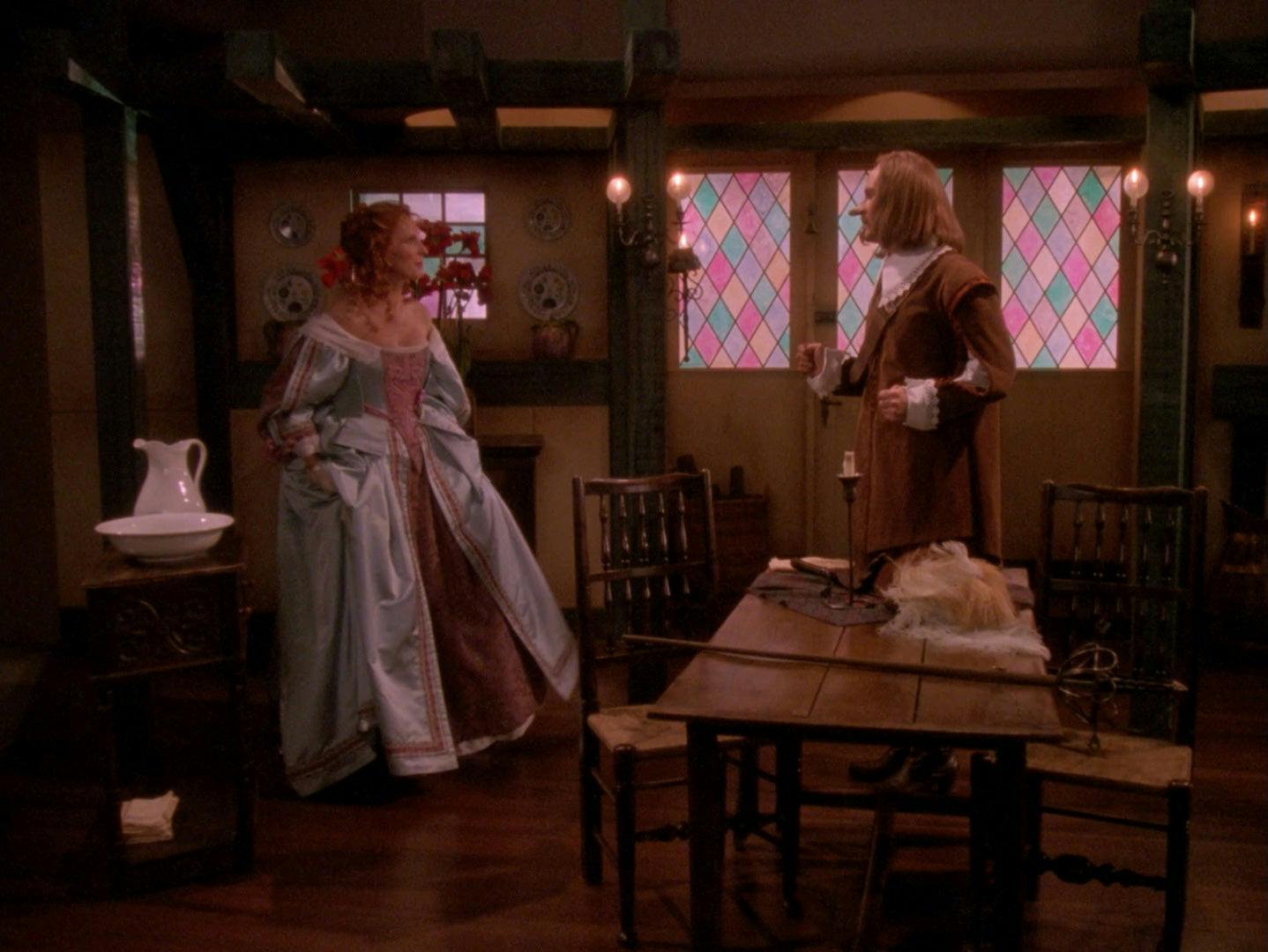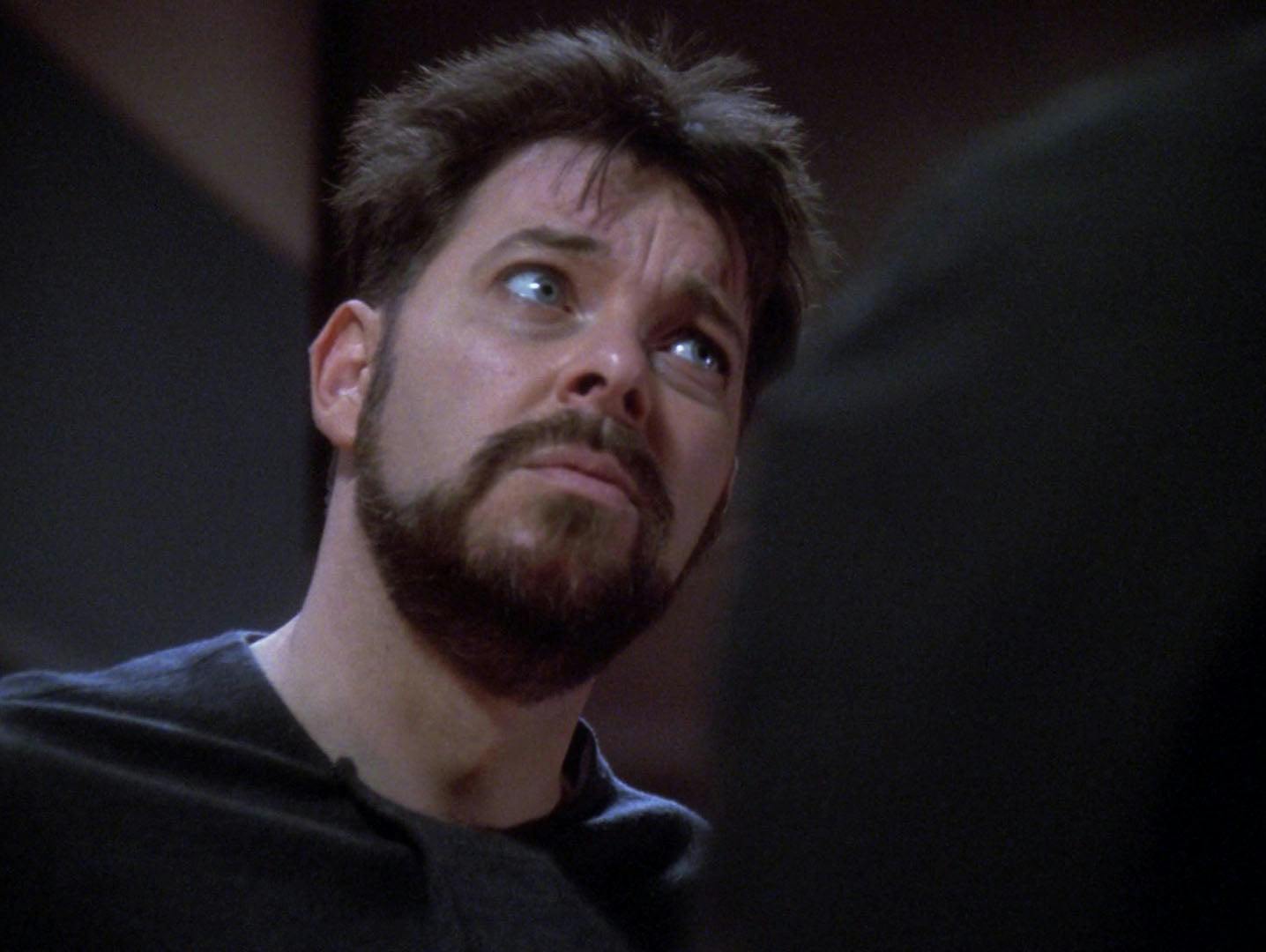Published Nov 15, 2022
5 Times Theater Took Center Stage in Star Trek
All the world’s a stage, and all the Starfleet officers are merely players in it.

StarTrek.com
While Star Trek highlights STEM fields throughout the franchise, it also makes sure to give equal opportunity moments for the arts and humanities to shine through. Classic Earth literature, art, and music are key to the culture of Starfleet, and other alien cultures have their own arts that stand out from the crowd. Who doesn’t want to go to a Klingon opera or hear a concert of Bajoran dirges after all?
In Star Trek: Prodigy's “All the World’s a Stage,” the crew of the Protostar find a planet where the inhabitants have built their entire life around the stories and mission logs of a crewmember from Kirk’s Enterprise. Key to their culture, beyond naming themselves after the Bridge crew and dressing in their own versions of TOS uniforms, are performances of the stories they heard about the Enterprise. Reminiscent of a version of Trek in the Park, these “Enderprizians” have a flair for the theatrical.
This isn’t the first time that theater took to the stage in Star Trek. From The Original Series onwards, various Trek shows have taken the time to appreciate a good play or opera. With that in mind, we’ve gathered five key moments where theater was central to a Star Trek story, from Klingons quoting an Earth bard to The Doctor getting the spotlight. Read on to learn more, and let us know on social what your favorite theater moment is in Star Trek.

StarTrek.com
Shakespeare, one of Earth’s most well-known playwrights, provides the dramatic backdrop for this tale of intrigue and revenge that the Bard would have probably loved. Years before the events of the series, Kirk and a fellow crewmember witness a genocide on the planet Tarsus IV. Kodo, the governor of the planet orders the deaths of thousands of colonists in order to save the other half from starvation. Despite the fact that Kodos is assumed to be dead, Kirk is convinced that the lead actor in a troupe of Shakespearean actors is in fact the man himself. This leads to one of Trek’s famous morality plays – should Kirk seek vengeance? What does vengeance in this situation even mean? This is rich enough to satisfy both Star Trek fans and those looking for a tragedy play out over an hour, and the use of Shakespeare throughout is fantastic.

StarTrek.com
The sixth and final TOS film is steeped deeply in Shakespeare. The title itself, The Undiscovered Country, is a reference to Hamlet’s famous Act 3 soliloquy, in which he discusses what mysteries await man after death. The stakes are just as high for Kirk, who faces the "Undiscovered Country" of peace with the Klingon Empire — a peace which requires him to abandon his own bigotry and prejudice. Can Klingons and Starfleet alike face their own undiscovered country? Kirk’s main opponent is a Shakespeare-quoting Klingon named General Chang, who frequently draws from the Bard to make his point. Chang’s last words? “To be… or not to be?” If this doesn’t make you want to see Shakespeare performed with Klingons, I’m not sure what will.

StarTrek.com
Most of this episode centers on Barclay’s sudden super intelligence and the ensuing danger that the ship is put in, but the episode opens with Barclay and Crusher performing a scene from Cyrano for the crew of the Enterprise-D. Cyrano is a play famous for telling the story of a man who uses his eloquence and wit to woo a woman for his best friend; the woman also happens to be the love of Cyrano’s life. It’s a story about self-acceptance, which makes it perfect to set up a Barclay tale. After all, Barclay suffers from a lack of confidence in who he is. A man who remains in the shadows of the heroes of the Enterprise-D, choosing Cyrano as a role for Barclay is a perfect way to signal to the audiences that we’re about to watch him grow.

StarTrek.com
The episode opens with Riker sitting alone in a dark room, pleading with an unseen figure to let him go so he can accept his new role in society. As he speaks, he begins to forget his words and he calls out for a line. The audience discovers that he is performing in the play, Frame of Mind, centered on a man tormented by his doctor in a psychiatric hospital. As the episode progresses, the line between reality begins to blur. Is Riker performing a play, or is he really being kept inside an alien hospital? It’s a dark episode, anchored by a strong performance from Jonathan Frakes, who truly brings us into Riker’s confusion and fear.

StarTrek.com
It’s hard to imagine a world without music. The Qomarians who Voyager passes by certainly don’t understand it, but when they hear the Emergency Medical Hologram (EMH) singing while he tends to their injuries, they’re enraptured. This leads to The Doctor almost leaving the ship in order to pursue a career in music on Qomar, which of course puts stress on the crew. Ultimately, the Qomar develop their own preferred musical style, which doesn’t appeal to the Starfleet crew, and The Doctor departs with the ship. As always, Robert Picardo delivers an amazing performance, and the episode’s focus on The Doctor’s interest in the arts – including performing music and opera live — make him just as human as his material counterparts.
